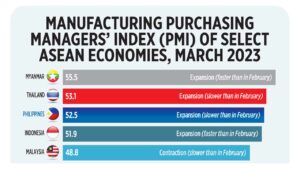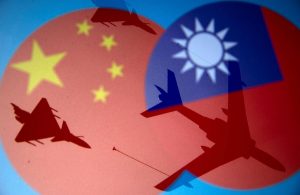Are gentlemen’s agreements and treaty withdrawals presidential prerogatives?

As China has been repeatedly citing a supposed gentleman’s agreement between then President Rodrigo Duterte and Chinese President Xi Jinping to maintain the status quo in Ayungin Shoal, where the BRP Sierra Madre had been run aground to serve as the country’s outpost in the West Philippine Sea, Defense Secretary Gilbert Teodoro, Jr. urged Filipinos early this month not to lose sight of China’s illegal activities in the West Philippine Sea (WPS).
He said, “While we realize that accountability is important in the issue on whether or not a so-called ‘gentleman’s agreement’ was forged with China regarding the BRP Sierra Madre and Ayungin Shoal, we Filipinos must not lose sight of the fact that the main threat to our rights in the WPS is the Chinese Government’s illegal activities. Let us not fall into the trap set by Chinese propaganda of refocusing the debate on a so-called promise while deflecting attention away from China’s government, thereby freeing and allowing them to continue with their illegal activities in our EEZ.”
But a couple of days later, Harry Roque, former spokesman of President Duterte, said that President Duterte and Chinese President Xi Jinping did strike a “gentleman’s agreement” to maintain the status quo in Ayungin Shoal. The deal involved allowing limited resupply missions to BRP Sierra Madre so that the soldiers stationed there would have food and water.
Bringing of construction materials to the decrepit BRP Sierra Madre was not allowed though as that was considered tantamount to building permanent structures in Ayungin Shoal, which China calls Ren’ai Jiao. But Mr. Roque did say the agreement was non-binding.
However, former President Duterte denied on April 11 that he had entered into a “gentleman’s agreement” during his term as president. He said such is not a practice of the president. “There is no agreement, as is where it is,” he said. He added that the only thing he remembered when he spoke with Xi Jinping was that armed patrols would not be seen moving in the West Philippine Sea to avoid tension and war.
But on April 11, the Chinese Embassy confirmed the existence of a “gentleman’s agreement” between President Duterte and President Xi Jinping regarding the BRP Sierra Madre in Ayungin Shoal.
The embassy posted on its website, “In order to manage the Ren’ai Jiao situation, during the Duterte Administration, China and the Philippines reached a Gentleman’s Agreement, which had effectively helped maintain the overall peace and stability at Ren’ai Jiao. In the beginning of the current Philippine Administration, the said Agreement was still followed in handling the resupply mission of Ren’ai Jiao. But since February 2023, the Philippine side has ceased to abide by the Agreement, categorically denied its existence, and kept stirring up trouble to provoke incidents. This is the reason behind the constant volatility in Ren’ai Jiao in the past year,” it added.
China has stepped up its aggressive activities in the West Philippine Sea in recent months. Philippine boats on a resupply mission to the BRP Sierra Madre have been blocked by Chinese Coast Guard vessels. Some of them have fired water cannons at Philippine boats en route to BRP Sierra Madre. The Chinese embassy said “It has no choice but to take all necessary measures to safeguard its own sovereignty and territorial integ-rity. We would like to once again urge the Philippines to honor its promises and consensus reached, stop provocations and return to the right track of dialogue and consultation.”
With the Chinese Embassy confirming the existence of a gentleman’s agreement between the two presidents, former president Duterte then admitted that he had agreed to maintain the status quo in the West Philippine Sea. “Aside from the fact of having a handshake with President Xi Jinping, the only thing I remember was status quo. That’s the word — no movement, no armed patrols there,” he said.
He said the deal involved not bringing construction materials for the repair and upkeep of the BRP Sierra Madre in Ayungin Shoal. He added that despite the verbal agreement, “We have not conceded anything to China.”
President Ferdinand “Bongbong” Marcos was “horrified” when informed that the Chinese Embassy was invoking a “gentleman’s agreement” entered into by President Duterte. Said he, “I am horrified by the idea that we compromised through a secret agreement the territory and the sovereign rights of Filipinos. If that agreement says we have to ask permission from other countries in order to navigate our own territory, that kind of agreement would probably be difficult to follow.”
He need not agonize over it. Mr. Roque, who taught constitutional law and public international law, has said the agreement is not binding. Senate Minority Leader Aquilino Pimentel III. who topped the 1990 bar exams, said the agreement was unconstitutional and should not be binding on the Philippine government. “A single Filipino, no matter his position in the government, cannot bind the country in an informal, unwritten [and] unrecorded agreement,” he added.
Besides, President Marcos, Jr. can disregard totally Mr. Duterte’s agreement with Xi Jinping. As he himself has claimed, the president is the main architect of foreign policy. He is the president now. President Duterte unilat-erally withdrew the Philippines from the International Criminal Court (ICC), when membership in that body had to be ratified by the Philippine Senate.
In 2000, then President Joseph Estrada signed the Rome Statute, the treaty that established the ICC. However, the Philippine Senate failed to ratify the treaty. In 2005, human rights advocates petitioned the Supreme Court to move forward with the ratification of the treaty. But only in 2011, after civil society and many government instrumentalities advocated for ratification and enlisting public support during the presidency of Benigno Aquino III did the Senate ratify the Rome Statute.
Senator Miriam Defensor Santiago, Rapporteur on the Bill and chairperson of the relevant Sub-Committee, and Senator Loren Legarda, Chairperson of the Foreign Relations Committee, played a fundamental role in bringing about a decision supporting the treaty. The other senators who signed the ratification of the Rome Statute that created the ICC were current senators Alan Peter Cayetano, Pia Cayetano, Aquilino Pimentel III, Miguel Zubiri, Francis Escudero, Jinggoy Estrada, and Bong Revilla.
Senator Legarda hailed the Senate “in wasting no time in putting its stamp of approval on the treaty after President Aquino’s signing of the instrument of ratification.” She deposited the Instrument of Ratification with the UN Office of Legal Affairs in New York on Aug. 31, 2011. She manifested that this “is a step in the right direction, considering that the Philippines is a thriving and robust democracy. This will strengthen our stand in protecting human rights, including the right to human life and dignity, and will bring a strong message that we will never tolerate impunity.”
But on March 17, 2018, then President Rodrigo Duterte announced the withdrawal of the Philippines from the ICC, one month after the Prosecutor of the ICC, Fatou Bensouda, announced the start of a preliminary examina-tion in the Philippines which would look, inter alia, into alleged crimes against humanity committed in the country, including the possible criminal responsibility of Duterte himself.
A petition filed by opposition senators with the Supreme Court argued against the unilateral decision of the President to withdraw from an international treaty, stating that as it is “equivalent to a repeal of a law,” which would require congressional approval. But the United Nations Secretary General set March 17, 2019 as the end of the one year “transition” period for the Philippines’ final exit from the ICC (per Article 127 (1) of the Rome Stat-ute). Thus, the Philippines ceased to be a member of the ICC on March 18, 2019.
If President Duterte could unilaterally withdraw the country from an international treaty, President Marcos can disregard Mr. Duterte’s personal commitment.
Oscar P. Lagman, Jr. is a keen observer of Philippine politics.




